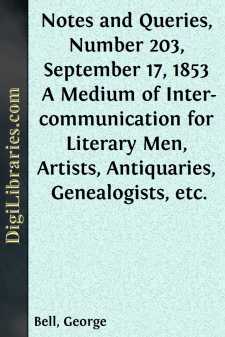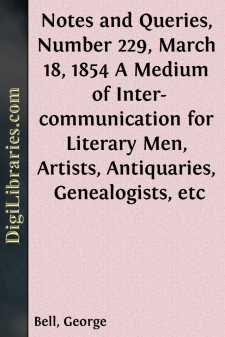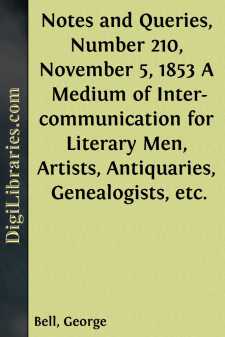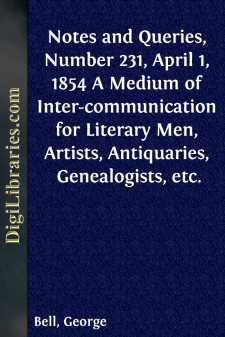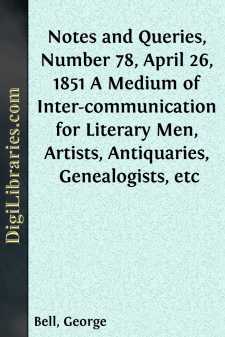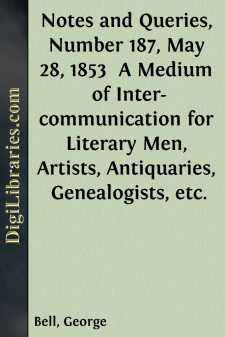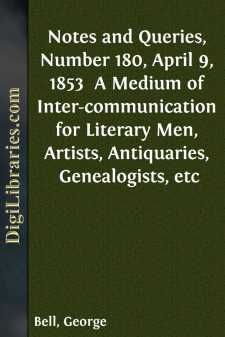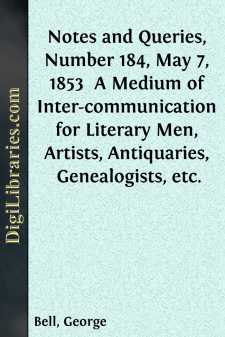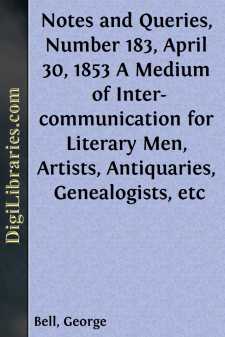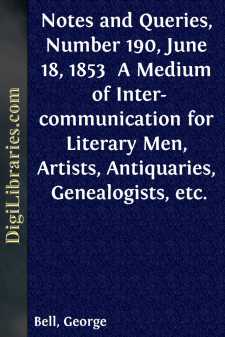Categories
- Antiques & Collectibles 13
- Architecture 36
- Art 48
- Bibles 22
- Biography & Autobiography 813
- Body, Mind & Spirit 142
- Business & Economics 28
- Children's Books 14
- Children's Fiction 11
- Computers 4
- Cooking 94
- Crafts & Hobbies 4
- Drama 346
- Education 46
- Family & Relationships 57
- Fiction 11828
- Games 19
- Gardening 17
- Health & Fitness 34
- History 1377
- House & Home 1
- Humor 147
- Juvenile Fiction 1873
- Juvenile Nonfiction 202
- Language Arts & Disciplines 88
- Law 16
- Literary Collections 686
- Literary Criticism 179
- Mathematics 13
- Medical 41
- Music 40
- Nature 179
- Non-Classifiable 1768
- Performing Arts 7
- Periodicals 1453
- Philosophy 64
- Photography 2
- Poetry 896
- Political Science 203
- Psychology 42
- Reference 154
- Religion 513
- Science 126
- Self-Help 84
- Social Science 81
- Sports & Recreation 34
- Study Aids 3
- Technology & Engineering 59
- Transportation 23
- Travel 463
- True Crime 29
Sort by:
by:
George Bell
OUR SHAKSPEARIAN CORRESPONDENCE. We have received from a valued and kind correspondent (not one of those emphatically good-natured friends so wittily described by Sheridan) the following temperate remonstrance against the tone which has distinguished several of our recent articles on Shakspeare:— Shakspeare Suggestions (Vol. viii., pp. 124. 169.).— "Most busy, when least I do." I am...
more...
by:
George Bell
GOSSIPING HISTORY. "This is the Jew That Shakspeare drew." I do not know by whom or when the above couplet was first imputed to Pope. The following extracts will show how a story grows, and the parasites which, under unwholesome cultivation, adhere to it. The restoration of Shakspeare's text, and the performance of Shylock as a serious part, are told as usual. "In the dumb action of...
more...
by:
George Bell
LORD HALIFAX AND MRS. CATHERINE BARTON. Those who have written on the life of Newton have touched with the utmost reserve upon the connexion which existed between his half-niece Catherine Barton, and his friend Charles Montague, who died Earl of Halifax. They seem as if they were afraid that, by going fairly into the matter, they should find something they would rather not tell. The consequence is,...
more...
by:
George Bell
KENNINGTON COMMON. Before all traces be lost of Kennington Common, so soon to be distinguished by the euphonious epithet of Park, let me put a Query to some of your antiquarian readers in relation thereunto; and suffer me to make the Query a peg, whereon to hang sundry and divers little notes. And pray let no one ridicule the idea that Kennington has its antiquities; albeit that wherever you look, new...
more...
by:
George Bell
ON THE PROPOSED SUGGESTIONS FOR PRESERVING A RECORD OF EXISTING MONUMENTS. The following communications have reached us since the publication of our remarks on the proposed Monumentarium Anglicanum (No. 73. p. 217. et seq.). They serve to show how much interest the subject has excited among those best qualified to judge of the great utility of some well-organised plan for the preservation of a record...
more...
by:
George Bell
ON CHAUCER'S KNOWLEDGE OF ITALIAN. In the Memoir prefixed to the Aldine edition of the Poetical Works of Chaucer, London, 1845, Sir Harris Nicolas expresses an opinion that Dan Geoffrey was not acquainted with the Italian language, and therefore not versed in Italian literature. "Though Chaucer undoubtedly knew Latin and French, it is by no means certain, notwithstanding his supposed...
more...
by:
George Bell
RIGBY CORRESPONDENCE. [We are enabled, by the kindness of their possessor, to lay before our readers copies of the following characteristic letters from the well-known Richard Rigby, Esq., who was for so many years the leader of the Bedford party in the House of Commons. They were addressed to Robert Fitzgerald, Esq., a member of the House of Commons in Ireland, and Judge of the Court of Admiralty in...
more...
by:
George Bell
OLD POPULAR POETRY: "ADAM BELL, CLYM OF THE CLOUGH, AND WILLIAM OF CLOWDESLY." I have very recently become possessed of a curious printed fragment, which is worth notice on several accounts, and will be especially interesting to persons who, like myself, are lovers of our early ballad poetry. It is part of an unknown edition of the celebrated poem relating to the adventures of Adam Bell, Clym...
more...
by:
George Bell
PROCLAMATION OF HENRY VIII. AGAINST THE POSSESSION OF RELIGIOUS BOOKS. The progress of the Reformation in England must have been greatly affected by the extent to which the art of printing was brought to bear upon the popular mind. Before the charms of Anne Boleyn could have had much effect, or "doubts" had troubled the royal conscience, Wolsey had been compelled to forbid the introduction or...
more...
by:
George Bell
ON THE USE OF THE HOUR-GLASS IN PULPITS. George Herbert says: "The parson exceeds not an hour in preaching, because all ages have thought that a competency."—A Priest to the Temple, p. 28. Ferrarius, De Ritu Concion., lib. i. c. 34., makes the following statement: "Huic igitur certo ac communi malo (the evil of too long sermons) ut medicinam facerent, Ecclesiæ patres in concionando...
more...


